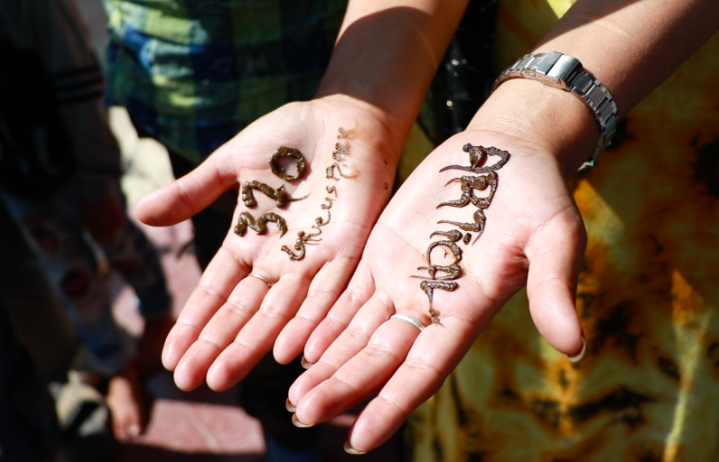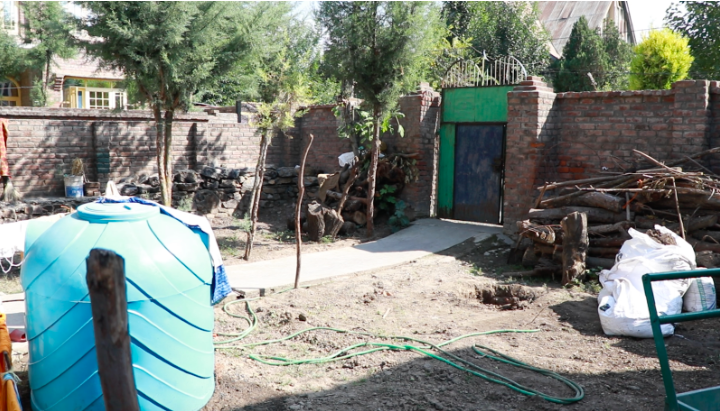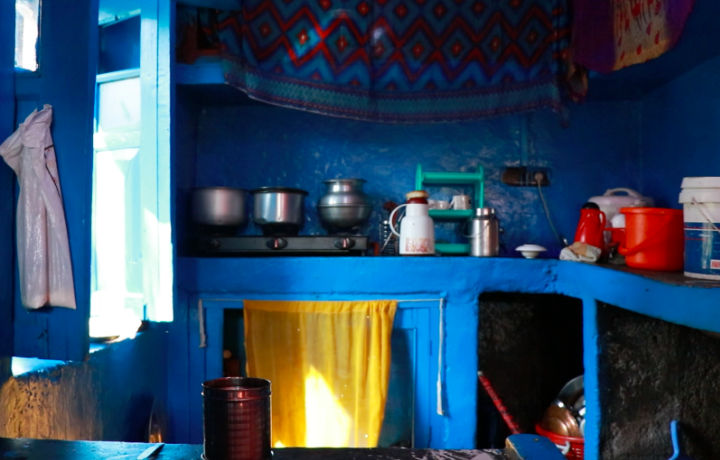Inside the Weddings of Curfewed Kashmir
“I am getting married today; I have written ‘give us Article 370 back’ on my hands with henna. Because on this day, my wish is that Article 370 should be restored. It is our identity, which is being taken away from us,” said Taha from Srinagar's Soura, as her family lines up whatever arrangements they could make in their half-done verandah for her wedding.

The region has remained completely cut off for over a period of 50 days since the Indian government unilaterally abrogated Article 370 on August 5, which conferred a special status to the state Jammu and Kashmir. The Soura region has witnessed mass protests and experiences severe tension between the locals and the armed forces. On the supposedly ‘happy’ occasions such as weddings, the locals now feel conflicted with the shadow of the ongoing crisis.
Speaking to NewsClick, Taha's brother said, “My sister is getting married tomorrow. This was supposed to be a happy moment for us, but it is not. We don't even know if the groom will be able to make it to the wedding. We don't know whether the maulvi will be able to come to perform the ceremony.”
With Soura cut off from the city, Taha's family is confused about how to get the groom to the village, as they also fear for his safety. “We will now have to make arrangements for the groom to come via a boat. We aren't even sure if that is possible,” said the brother.
The date of Taha’s wedding—like many others—was decided in the Islamic holy month of Ramazan when the situation was normal in the state, with the Amarnath Yatra helping the local businesses and the tourism industry prosper.

“We did not foresee the earthquake that was the abrogation of Article 370. If we would have seen it coming, we would have changed the dates of the wedding, but we haven’t been able to communicate at all. We aren’t able to communicate with the groom’s side,” said the bride’s brother.
Sitting in an almost empty home with limited relatives, the family questioned, “Does this look like a wedding to you?” The family is struggling to even collect food supplies for the wedding day. “There is no food stocked in our kitchen. We aren’t being able to fetch any material from the market. Kashmiri weddings are big on food; we cook for three days and celebrate. But we couldn’t even find the cooks to come and cook for us. This is going to be a wedding without the Kashmiri Wazwan (feast). If the groom is able to make it, then also we’d be able to serve only Dal (lentils). Is that something you serve at a wedding?” asked the brother.

On the other hand, in another corner of Srinagar's Bemina, a groom is headed to Downtown Srinagar with only one other relative to bring his bride home.
Speaking to NewsClick, Razzaq* (name changed) said, “We had planned something entirely different. None of my guests are here. This day is extremely painful for us. My family members wanted to come along and welcome her with a pomp, but when the entire state is burning and mourning, how do I celebrate this day?”
As the groom leaves despite the news about stone pelting and conflict in the region, women in the house try to lighten up the atmosphere by singing traditional songs. Bashra, a teenager, said, “I am glad that we are all together and safe, but singing right now feels like I'm performing to be happy. In reality, I'm extremely frustrated because of everything.”
An elderly relative at the wedding, Muzzafar Ahmad, said, “Our children are in the graveyards; they have been killed and tortured and detained. I feel extremely conflicted on this happy occasion for my child.”
A cousin of the groom, Shabeer, especially flew in from Delhi for the ceremony. Speaking to NewsClick, he said, “It was heartbreaking to enter my house on this occasion and see absolutely deafening kind of silence. This was supposed to be a three-day affair. We were supposed to have our family here. We have been planning this day for the past six months. All of that was put to waste, as we had to call our guests, asking them not to come.”
“We had paid an advance amount to the decorators and the cooks and now none of them could turn up. But this isn’t just about the arrangements; it is about the sentiment we all share—the dilemma and fear,” said Shabeer.
He further said that on August 5—the day Article 370 was abrogated—his child was born. “All our important days have been marred by this conflict. When my son was born, we were asked to leave the hospital immediately. We couldn’t pay the hospital, as we had no cash on us. On our way back, it was an absolute mayhem, and it was a dark day. I couldn’t even inform my parents that my first child is born. How am I supposed to be happy?” he asked.
He added, “For us this is not just a story of politics it is the story of broken promises and us inheriting conflict, I didn't want my child to be born in conflict and I didn’t want my brother to be married in conflict but this is our reality.”
Also read: After Initial Celebrations, Sense of Loss Among Jammu Leadership
Get the latest reports & analysis with people's perspective on Protests, movements & deep analytical videos, discussions of the current affairs in your Telegram app. Subscribe to NewsClick's Telegram channel & get Real-Time updates on stories, as they get published on our website.
























